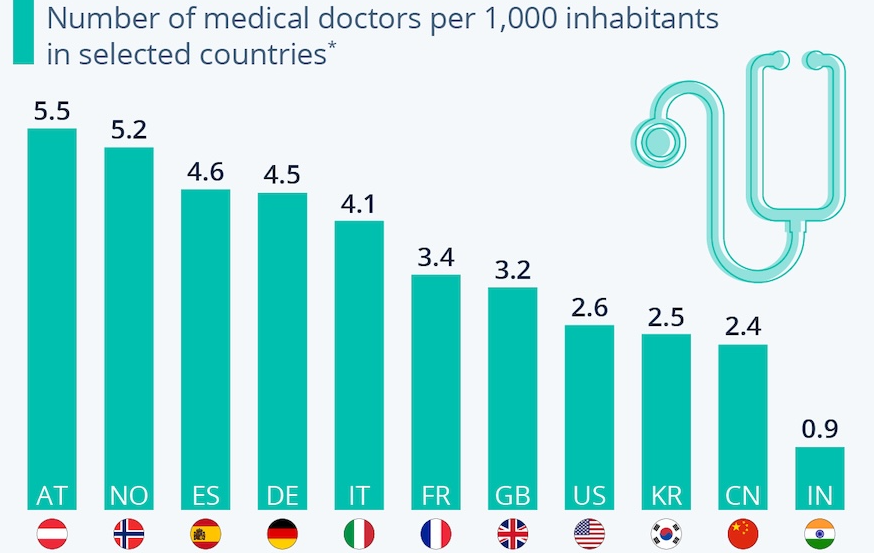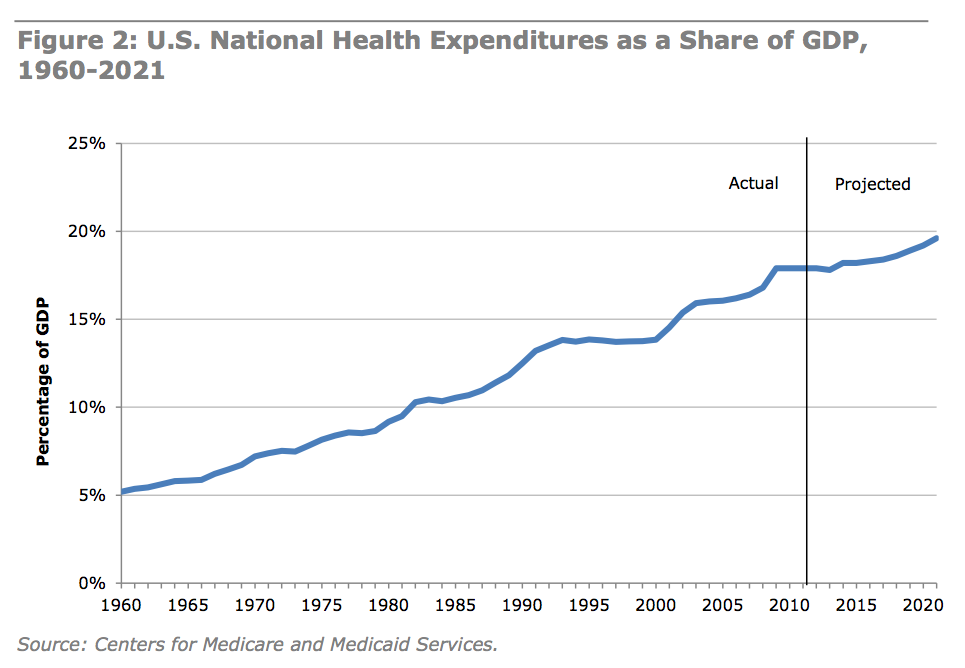The Achilles heel of American capitalism
The Achilles heel of American capitalism
The Achilles heel of American capitalism

A doctors per capita comparison misses out on the nuances of how healthcare is delivered in different countries

The figs are from Greece. The dates from Tunisia. The mangoes from Mexico. The blueberries from Chile. The grapes from South Africa. I explained to my mother while showing her the kitchen. “And what’s American?” she asked. “The pieces of paper with Benjamin Franklin’s portrait given to those sellers in return”, I replied.

“The apartment rents are high right now, but we got a good deal”, he said, smiling alongside his roommate. Another friend said, “We got a good deal on a car loan, so, we took the loan, it’s good for building credit history to buy a house later”. “The instructor was super-happy with our amazing group. He taught us a few special tricks that he says he rarely taught.” “The bartender was super-nice to us and made us a special drink” ...
One weird aspect of life in the USA is not just the weird labor vs material costs but even how much the material costs vary from retailer to retailer. I have been to 50+ countries now and have not seen this variance in any high-income, middle-income, or low-income country. It taxes your mental energy because even simple tasks can have a huge cost variance. My car has two battery-powered keys. One was dead, other one started giving low-battery notifications as well. Over the weekend, I learned about different ways to change the car battery with a 100X variation in costs. ...
The price variance one sees in the United States is huge.
While Sitting at a local restaurant in Cairo, Egypt, I deliberated between Subia and Dom Palm to drink. Two adult women, the mother (in-law?) wearing a burqa and the daughter (in-law?) wearing an abaya sat in front of me. The third member of their party was a little girl, wearing a bright pink frock. She was small enough to be placed right on the table. Dom Palm, I decided, will be the “authentic” Egyptian taste for tonight.

Car insurance in the United States is a system that more or less works well. You call up insurance agents representing different insurance companies with similar policies but varying quality of service. Then you buy it based on how much insurance premium they charge and how good/bad quality of service you are willing to accept. If you have an expensive car or you are a reckless driver, you end up paying more. The less you use your insurance, the lower your premium becomes over time.
KBB is used in the US for estimating the value of a used car before buying/selling it. While helping friends buy used cars, I felt that it always overvalued the car. I feel there is an anchoring effect in play here. A car owner (seller) feels happier checking the value of their car since it is being reported higher than what they expect. This provides a nice room for providing a discount for converting the buyer. A buyer, especially a first-time one, would feel happier since they are getting a discount on the KBB value. If instead KBB rightly priced the cars, it would leave no room for negotiation, leading to lower conversions. Thus, despite having no direct incentives, KBB would be inclined towards overvaluation. I wonder if the same thing applies for home-buying sites like Zillow and Trulia. ...
“I need the address.”, the immigration official shouted at her, as she, a septuagenarian Indian woman, with her limited English, repeatedly, pointed to the paper containing the phone number of her daughter.